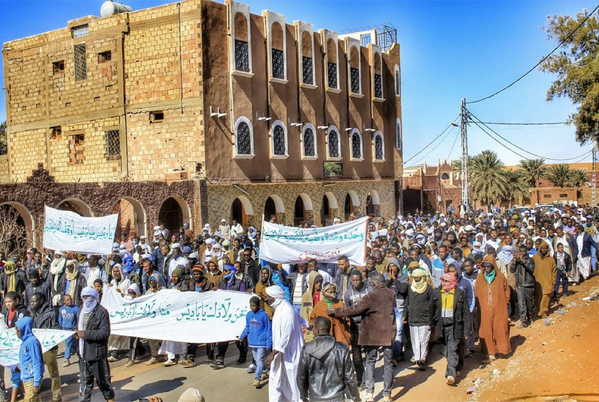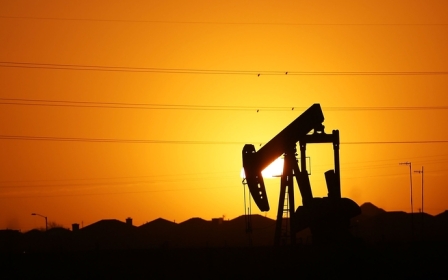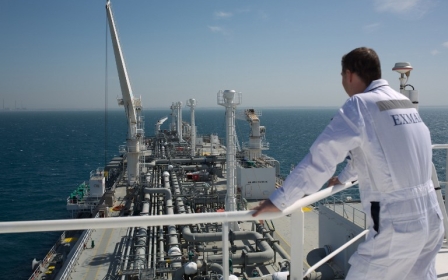Energy execs worry about survival as communities they've devastated fight to survive

Executives from BP, Shell, Exxon and other major oil and gas companies from across the world meet in London this week for the “Oil and Money” conference. The theme for the 2016 conference is "Boom, Bust and Beyond: Strategies for Survival". This year, the luxurious InterContinental Park Lane hotel plays host.
What is most important: the multi-billion dollar profits that these companies are making or the fate of populations that feel dispossessed and robbed of their wealth and lands?
Yet far from the grandeur of the conference setting, people all over the world, particularly in the global South, are facing the catastrophic effects of the oil and gas industry. From violent dispossessions and displacements, to the plunder of resources and the destruction of the environment and livelihoods, the industry is wreaking havoc.
And this is all compounded by a worsening climate crisis, caused by an addiction to fossil fuels enforced by the industry's greed and indifference to the plight of poor communities and the future of humanity.
Take Algeria. Despite the horrific civil war in the 1990s, oil and gas companies such as BP and Total signed lucrative contracts that bolstered the regime while it carried out systematic violence across the country. By putting their profits first, these companies were complicit in the Algerian regime’s “dirty war”.
Meanwhile, in Tunisia, companies like Petrofac, Shell and Perenco continue to garner obscene profits and enjoy impunity for corruption and pollution, while local communities continue to shoulder the burden of the externalised social and environmental costs of their operations.
Whose survival?
Alongside keynote speakers from some of the worst offenders like BP, Shell, Total, Chevron and ExxonMobil, the Oil & Money 2016 conference invited Dawood Nassif, board director of The Bahrain Petroleum Company (BAPCO) and Khalid A al-Falih, the minister of energy, industry and mineral resources for the Kingdom of Saudi Arabia, representatives of brutal and highly repressive regimes in the region, the latter leading a criminal and cruel war against Yemenis, with arms and weapons supplied by Britain and the West.
The damage being done is clear to see. So the apt question is whose survival are we talking about?
Unsurprisingly, this it is not confined to North Africa and West Asia. Consider Colombia, where in one region alone, Casanare, the operations of some of the world’s major oil companies have proved devastating. From construction of pipelines which have led to soil erosion, spoiled crops and polluted fish ponds, to the financing of the Colombian army during a time when the army’s documented link to paramilitary death-squads was said to have triggered the assassinations of over 3,000 community members and trade union activists.
The damage being done is clear to see. So the apt question is whose survival are we talking about? Is it the survival of a corrupt industry that generates chaos and misery for the people or is it the survival of whole communities that aspire to live in dignity and justice? What is most important: the multi-billion-dollar profits that these companies are making or the fate of populations that feel dispossessed and robbed of their wealth and lands?
The illogic of profit
We cannot have both. The industry’s “strategy for survival” is predicated on death and destitution for much of the world’s population, especially marginalised communities in the global South. For survival, people need to regain sovereignty over their resources in order to achieve a just transition to a better and more democratic future.
The oil industry must be curtailed and held accountable because continuing its destructive operations is akin to issuing a death sentence for people all around the world
And yet the UK rolls out the red carpet for the oil industry to whitewash its crimes. For instance, the City of London is at the heart of the global extractive industries and consecutive British governments constantly offer their political support and backing to British companies like BP and Shell for projects that end up abusing human rights, dispossessing people and destroying ecosystems.
This dismal state of affairs must be challenged and this kind of shameful gathering should not be tolerated, especially when the participants talk about their industry's survival through further pillaging of resources from the global South. The UK must end its role as a welcoming host for these colonial-style carve ups and in supporting a system that enable corruption and resource grabs. Ultimately, we must move away from the logic of profit that privatises our livelihoods, our lands and our resources.
The extractivist model of development has been a mechanism of colonial and neo-colonial plunder and appropriation, based on accumulation by dispossession and socio-ecological violence. For its victims to regain democratic, ecological and redistributive control over their lives, environment, resources and destiny, the oil industry must be curtailed and held accountable as a first step, because continuing its destructive operations is akin to issuing a death sentence for people all around the world.
- Hamza Hamouchene is an Algerian writer, activist, co-founder of Algeria Solidarity Campaign (ASC) and Senior Programme Officer- North Africa and West Asia at War on Want. His writings appeared in the Guardian, Huffington Post, Counterpunch, Jadaliyya, New Internationalist and openDemocracy.
The views expressed in this article belong to the author and do not necessarily reflect the editorial policy of Middle East Eye.
Photo: Flaring in the oil center of Hassi Messaoud in the Algerian Sahara which is connected by pipeline to the port of Bejaia and Arzew - April 1980 (AFP)
New MEE newsletter: Jerusalem Dispatch
Sign up to get the latest insights and analysis on Israel-Palestine, alongside Turkey Unpacked and other MEE newsletters
Middle East Eye delivers independent and unrivalled coverage and analysis of the Middle East, North Africa and beyond. To learn more about republishing this content and the associated fees, please fill out this form. More about MEE can be found here.






